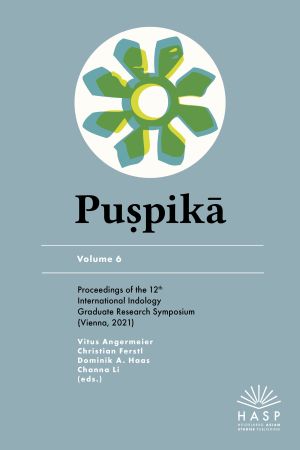Comment citer
Licence (Chapitre)

Ce travail est disponible sous licence Creative Commons Attribution - Partage dans les Mêmes Conditions 4.0 International.
Identifiants (Livre)
Publié
Téléchargements
Svāmī Dayānanda Sarasvatī and Svāmī Karapātrī
Two Competing Discourses on Icon Worship in 19th- and 20th-Century India
Mūrti pūjā, or icon worship, is a widespread ritual practice in Hindu traditions. This article examines the intellectual debate on icon worship between the Ārya Samāja and Sanātanists emerging in 19th- and 20th- century India. Svāmī Dayānanda, the founder of the Ārya Samāja, believed that the Vedas – the only source of infallible truth – assert the existence of a single, formless God. Accordingly, he regarded icon worship as a “ridiculous” practice and its popularity as a sign of the decay of Hindu society. Svāmī Karapātrī, an influential 20th-century Indian scholar, disagreed with Svāmī Dayānanda’s exegesis, and thus wrote the Vedārtha Pārijāta (“The Night Jasmine of Vedic Meanings”), where he comments on and confutes the philosophical positions of the Ārya Samāja established in Dayānanda’s Ṛgvedādibhāṣyabhūmikā (“Introduction to the Commentary on the Ṛg Veda, etc.”). In this article, after introducing the characters of Svāmī Dayānanda and Svāmī Karapātrī, there will follow an analysis of an excerpt from the Vedārtha Pārijāta, where Svāmī Karapātrī examines and discredits elements of Svāmī Dayānanda’s philosophical discourse on mūrti pūjā. This study contributes to contemporary scholarship on the colonial and post-colonial conflict between the Ārya Samāja and traditionalist groups.
Keywords religious debate, Vedic exegesis, iconoclasm, Neo-Hinduism, traditionalism









